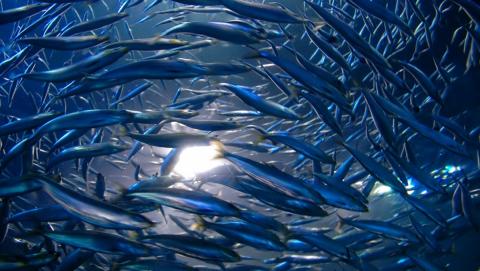
Studies off the west coast of North America add to a growing body of evidence that the ability to breathe will shift the future distribution of marine species, potentially compromising their ability to weather further climate change, researchers say.
They suggest that oxygen loss in the warming waters of the California Current System (CCS) will lower the region’s Metabolic Index – the temperature-dependent ratio of oxygen supply to species’ metabolic demand – to below critical levels, limiting where they can live.
“Climate change isn’t just warming the oceans; it is causing oxygen to decrease, which could force fish and other ocean animals to move away from their normal range to find higher-oxygen waters,” says Evan Howard from the University of Washington (UW), lead author of a paper in the journal Science Advances.
The cool, nutrient-rich water between Mexico and Canada supports everything from phytoplankton to orcas, but among the most important to the food chain is the northern anchovy, which has been closely monitored since the 1950s.
Howard and colleagues combined historical data with recent findings about water breathability to explain population cycles. Read More
